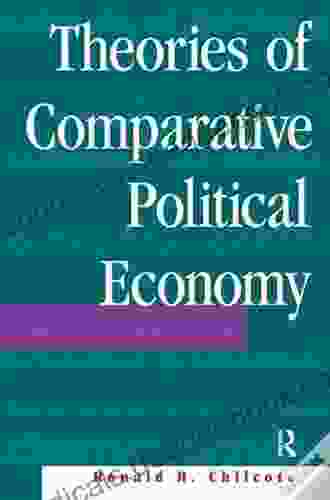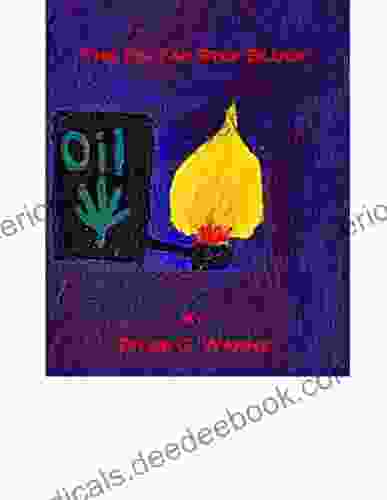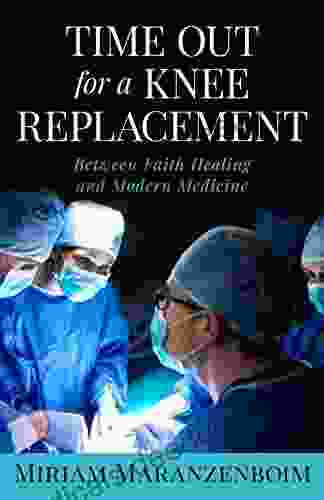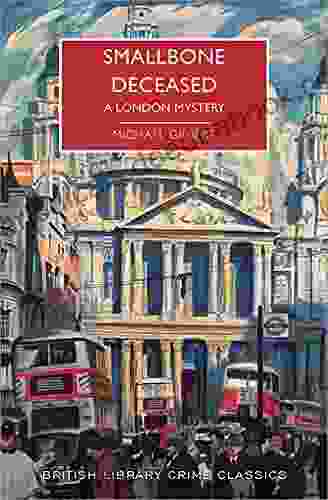Theories of Comparative Political Economy: Unraveling the Complexities of Politics and Economics

Comparative political economy is a multifaceted field that seeks to understand the complex relationship between politics and economics, particularly across different countries and societies. By examining the interplay of these two spheres, scholars aim to illuminate the factors that shape economic outcomes and how political institutions and policies influence economic development.
5 out of 5
| Language | : | English |
| File size | : | 2590 KB |
| Text-to-Speech | : | Enabled |
| Screen Reader | : | Supported |
| Enhanced typesetting | : | Enabled |
| Word Wise | : | Enabled |
| Print length | : | 331 pages |
| Hardcover | : | 264 pages |
| Item Weight | : | 15.2 ounces |
| Dimensions | : | 5.5 x 0.75 x 8.75 inches |
Core Concepts:
- Political economy: The integrated study of politics and economics, focusing on how they interact and influence societal outcomes.
- Comparative analysis: The systematic examination of similarities and differences across countries or regions to identify patterns and draw meaningful s.
- Institutions: Formal or informal structures, rules, and norms that shape economic and political behavior.
- Development: The process of sustained economic and social progress, often measured by indicators such as GDP per capita and literacy rates.
Methodological Approaches:
Comparative political economy employs a range of methodologies to investigate its subject matter, including:
- Quantitative methods: Statistical analysis and econometrics to identify empirical relationships between political and economic variables.
- Qualitative methods: Case studies, entrevistas, and participant observation to gain deeper insights into specific political and economic contexts.
- Historical analysis: Examination of historical data and trends to understand the evolution of political-economic systems.
Major Schools of Thought:
Several prominent schools of thought have emerged within comparative political economy:
1. Neoclassical Economics:
Based on the principles of rational choice and free markets, neoclassical economics emphasizes the importance of individual incentives and market competition in shaping economic outcomes. It argues that government intervention should be minimal, as it distorts markets and hinders economic growth.
2. Marxist Political Economy:
Drawing from the works of Karl Marx, Marxist political economy views the economy as a class-based system where the dominant economic class exploits the working class. It emphasizes the role of power and inequality in shaping economic outcomes and advocates for a socialist revolution to overthrow capitalism.
3. Institutionalism:
Institutionalism focuses on the role of formal and informal institutions in shaping economic outcomes. It argues that institutions, such as property rights, legal systems, and political structures, play a crucial role in determining economic growth and development.
4. Structuralism:
Structuralist theory, prevalent in developing countries, emphasizes the structural barriers and inequalities that hinder economic growth. It advocates for state intervention and regional integration to overcome these barriers and promote development.
5. Dependency Theory:
Dependency theory argues that developing countries are economically dependent on developed countries and that this dependency perpetuates underdevelopment. It advocates for policies that promote self-sufficiency and reduce foreign control over economies.
Applications:
Theories of comparative political economy have wide-ranging applications, including:
- Economic policymaking: Analyzing the political and economic factors that influence economic growth and development, providing policymakers with insights for designing effective policies.
- Comparative politics: Understanding the political systems and institutions that shape economic outcomes in different countries.
- International relations: Examining how economic factors influence political interactions between countries, such as trade, aid, and investment.
- Development studies: Identifying the political and economic obstacles to development and exploring strategies to overcome these challenges.
:
Theories of comparative political economy offer a multifaceted approach to understanding the complex relationship between politics and economics. By comparing different countries and societies, scholars gain insights into the factors that shape economic outcomes and how political institutions and policies influence economic development. The field provides essential knowledge for policymakers, political scientists, economists, and anyone interested in the interplay of these two fundamental spheres of human activity.
5 out of 5
| Language | : | English |
| File size | : | 2590 KB |
| Text-to-Speech | : | Enabled |
| Screen Reader | : | Supported |
| Enhanced typesetting | : | Enabled |
| Word Wise | : | Enabled |
| Print length | : | 331 pages |
| Hardcover | : | 264 pages |
| Item Weight | : | 15.2 ounces |
| Dimensions | : | 5.5 x 0.75 x 8.75 inches |
Do you want to contribute by writing guest posts on this blog?
Please contact us and send us a resume of previous articles that you have written.
 Book
Book Page
Page Text
Text Story
Story Genre
Genre Reader
Reader Library
Library E-book
E-book Paragraph
Paragraph Sentence
Sentence Shelf
Shelf Bibliography
Bibliography Foreword
Foreword Synopsis
Synopsis Scroll
Scroll Codex
Codex Narrative
Narrative Autobiography
Autobiography Memoir
Memoir Reference
Reference Dictionary
Dictionary Narrator
Narrator Character
Character Resolution
Resolution Librarian
Librarian Card Catalog
Card Catalog Study
Study Reserve
Reserve Reading Room
Reading Room Rare Books
Rare Books Special Collections
Special Collections Interlibrary
Interlibrary Literacy
Literacy Study Group
Study Group Thesis
Thesis Dissertation
Dissertation Storytelling
Storytelling Awards
Awards Book Club
Book Club Theory
Theory Bonnie Barker
Bonnie Barker Wendy Wax
Wendy Wax Veronica Mixon
Veronica Mixon Barbara Weiland Talbert
Barbara Weiland Talbert Denis Rothman
Denis Rothman Carley Meyer Schweinberg
Carley Meyer Schweinberg Clarence Darrow
Clarence Darrow Dr Harjinthar Singh
Dr Harjinthar Singh Melanie Metzenthin
Melanie Metzenthin Paige M Warren
Paige M Warren Franck Ferrandis
Franck Ferrandis Graham Hutchins
Graham Hutchins Lindsay Rogers
Lindsay Rogers Melinda Roth
Melinda Roth Matt Foster
Matt Foster S Enders Wimbush
S Enders Wimbush Franklin Kendrick
Franklin Kendrick Louise Allen
Louise Allen Julia Simon
Julia Simon Lynn Bardowski
Lynn Bardowski
Light bulbAdvertise smarter! Our strategic ad space ensures maximum exposure. Reserve your spot today!
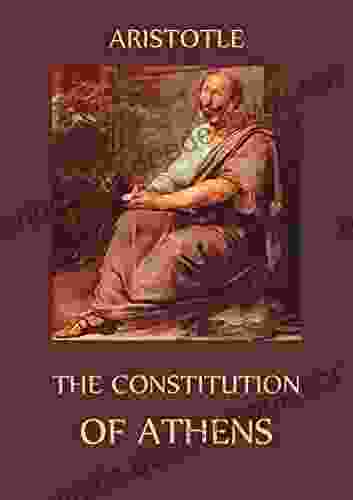
 D'Angelo CarterThe Constitution of Athens by Ravish Kumar: A Journey into the Heart of...
D'Angelo CarterThe Constitution of Athens by Ravish Kumar: A Journey into the Heart of... Henry HayesFollow ·6.1k
Henry HayesFollow ·6.1k Graham BlairFollow ·18.1k
Graham BlairFollow ·18.1k Glen PowellFollow ·8.6k
Glen PowellFollow ·8.6k Charles DickensFollow ·9k
Charles DickensFollow ·9k Alex FosterFollow ·8k
Alex FosterFollow ·8k Nikolai GogolFollow ·14.2k
Nikolai GogolFollow ·14.2k Blake BellFollow ·11.8k
Blake BellFollow ·11.8k Glenn HayesFollow ·7.4k
Glenn HayesFollow ·7.4k
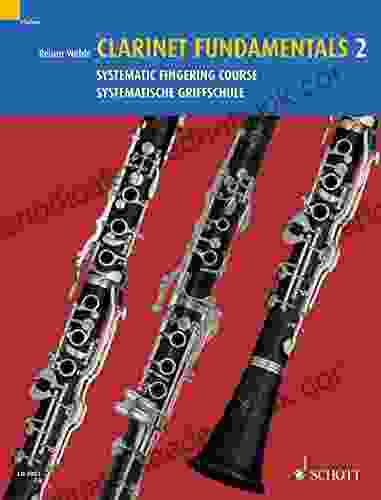
 Anton Chekhov
Anton ChekhovClarinet Fundamentals: A Systematic Fingering Course for...
Welcome to the exciting world of...
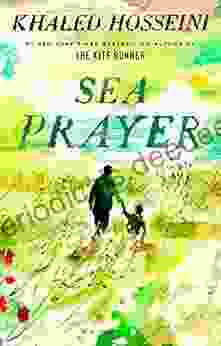
 Gage Hayes
Gage HayesSea Prayer: A Haunting and Heartbreaking Story of...
Sea Prayer, the latest...
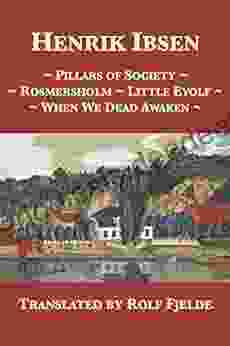
 Henry Green
Henry GreenPillars of Society Rosmersholm Little Eyolf When We Dead...
Henrik Ibsen, the towering...
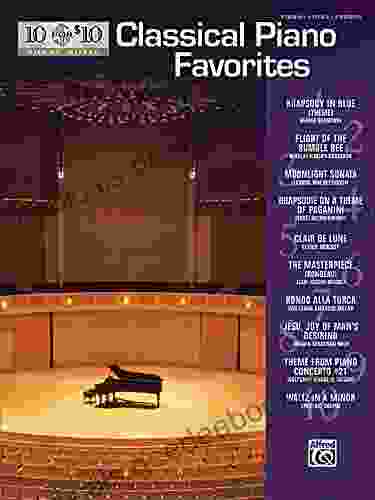
 Robert Reed
Robert Reed10 For 10 Sheet Music Classical Piano Favorites: A...
Learning to play the...
5 out of 5
| Language | : | English |
| File size | : | 2590 KB |
| Text-to-Speech | : | Enabled |
| Screen Reader | : | Supported |
| Enhanced typesetting | : | Enabled |
| Word Wise | : | Enabled |
| Print length | : | 331 pages |
| Hardcover | : | 264 pages |
| Item Weight | : | 15.2 ounces |
| Dimensions | : | 5.5 x 0.75 x 8.75 inches |


